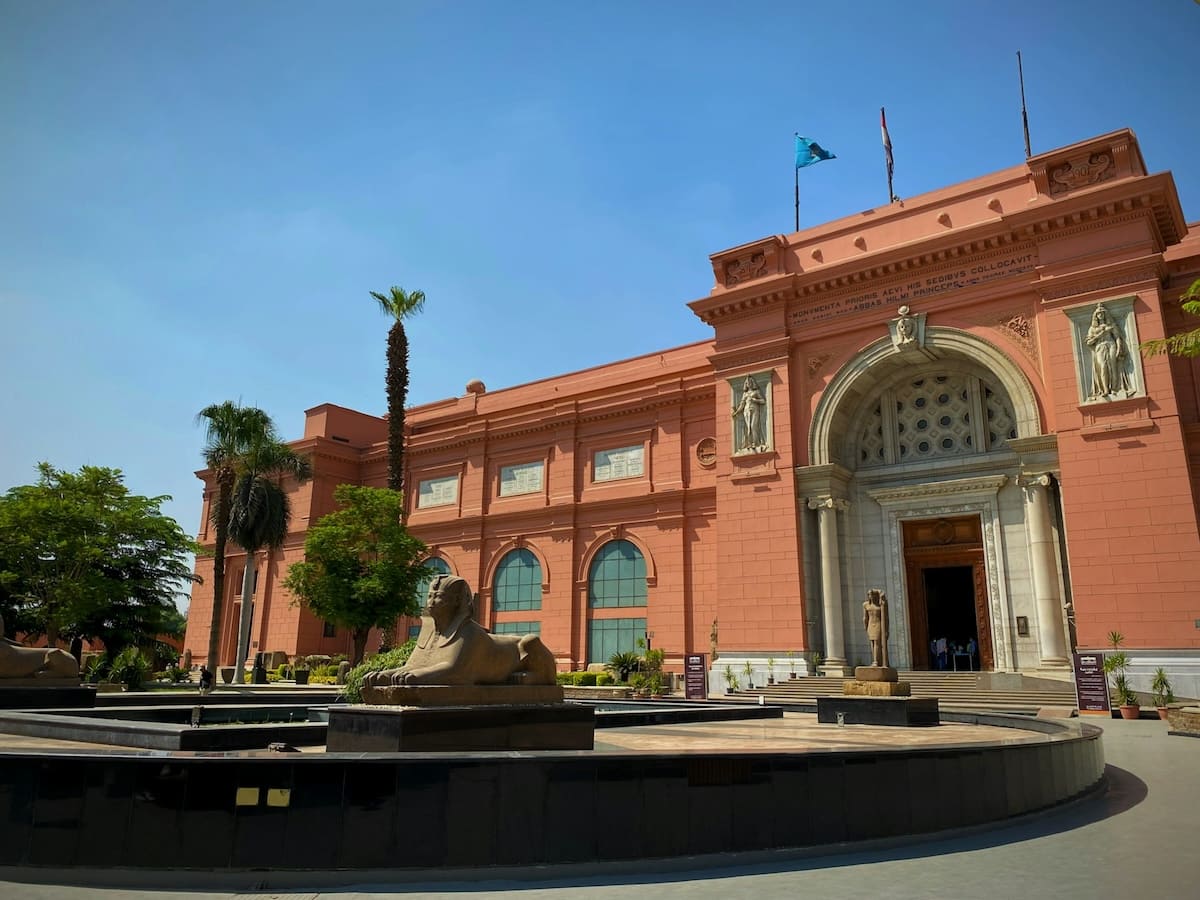No other nation in the world says ‘Welcome’ as often as the Egyptians, and every time, they mean it. While the ancient civilization of Egypt continues to amaze, contemporary Egyptians are equally remarkable.
Language in Egypt
Language and Communication in Egypt: A Traveler’s Guide
Embarking on a journey to Egypt is like stepping into a vivid tapestry of cultures, where the language is as rich and fascinating as the landscapes and pyramids. Whether you’re navigating through bustling bazaars, exploring majestic ancient monuments, or simply interacting with friendly locals, understanding the linguistic heritage of Egypt will profoundly enrich your travel experience.
Diving into the history of Egypt’s languages unveils a captivating narrative that spans thousands of years, reflecting the complex societal developments of one of the world’s oldest continuous civilizations. From the hieroglyphs adorning ancient temples to the modern dialects spoken in the bustling streets of Cairo, the evolution of language in Egypt is a testament to its rich cultural and historical tapestry.
The Evolution of Egyptian Language: A Journey Through Time
Ancient Egyptian Languages: The story of Egyptian language begins with the ancient Egyptians, who developed one of the earliest known writing systems. This was not merely a means of communication but a profound element of their cultural and religious life.
Archaic Egyptian (Before 2600 BCE): This earliest form of written Egyptian can be seen in the inscriptions and carvings that adorned the tombs of the earliest pharaohs. The script was rudimentary, consisting mainly of pictures used to denote words or sounds.
Old Egyptian (2600 BCE – 2000 BCE): The language matured during the era of the Pyramid Texts, which are among the oldest religious texts in the world. During this period, the language was both a tool for administrative duties and a sacred medium for religious expression.
Middle Egyptian (2000 BCE – 1300 BCE): Often regarded as Classical Egyptian, this language stage is the most thoroughly documented and studied, primarily because it was used during the golden age of ancient Egyptian culture. It is preserved in a variety of texts, including elaborate mythological texts that decorated the walls of temples and tombs, offering rich insights into the spiritual and daily lives of the ancient Egyptians.
Late Egyptian (1300 BCE – 700 BCE): As the language evolved, it became more streamlined and colloquial, reflecting changes in spoken dialects. Late Egyptian texts are more varied, including everything from high literature and poetic compositions to mundane lists and personal letters.
Demotic (700 BCE – 400 CE): By the late periods, Egyptian writing had become more abbreviated and simplified with Demotic, which means ‘popular script’. This form was used for everyday purposes, showcasing a more accessible and widespread literacy among the populace.
Coptic (from 400 CE): The final stage of the ancient Egyptian languages, Coptic, marked a significant transformation as it adopted the Greek alphabet with some additional letters from Demotic, facilitating the spread of Christianity in Egypt. Coptic remains in liturgical use among Egyptian Christians today and offers scholars key insights into the later phases of Egyptian language and culture.
Rosetta Stone: Deciphering the Language of the Pharaohs
A pivotal moment in unraveling the mysteries of ancient Egyptian language came with the discovery of the Rosetta Stone. Found in 1799 by French soldiers near the town of Rosetta (Rashid), this granodiorite stele proved instrumental in deciphering Egyptian hieroglyphs. The stone features the same text carved in three scripts: hieroglyphic, Demotic, and Greek. This trilingual text was a decree issued in Memphis in 196 BCE during the reign of Ptolemy V.
The Greek inscription on the Rosetta Stone, already known to scholars, served as the key to unlocking the hieroglyphic code. Through painstaking comparative analysis, scholars were able to match the Greek words with their hieroglyphic counterparts, bridging a gap of over two millennia. Jean-François Champollion, a French linguist, made a breakthrough in 1822 by successfully translating the hieroglyphs. His work not only illuminated the linguistic and cultural heritage of ancient Egypt but also opened a window into understanding its magnificent history and religion.
Today, the Rosetta Stone is housed in the British Museum, and its replicas can be seen in various museums around Egypt. When visiting Egypt, tourists and history enthusiasts can marvel at similar stelae and deciphered texts in museums, gaining insight into the intricate communication system that dominated ancient Egyptian civilization. This remarkable artifact symbolizes the link between Egypt’s past and present, offering a tangible connection to the ancient world and its enduring legacy in our understanding of human history.
Modern Egyptian Arabic:
Fast forward to modern times, Egyptian Arabic is the vernacular language of today’s Egyptians. It is a direct descendant of the Arabic introduced during the Arab conquest of Egypt in the 7th century but is distinctly influenced by the long linguistic history of the region. Egyptian Arabic is characterized by its lively, accessible idiom and is the lingua franca of Egyptian media and cinema, which play influential roles in the Arab world.
The Linguistic Legacy of Egypt:
Understanding the depth and breadth of Egypt’s linguistic evolution not only enriches a visitor’s experience but also bridges the ancient and modern worlds. The enduring legacy of Egyptian language, from the hieroglyphs that mystify and fascinate to the contemporary dialect that buzzes through the markets and streets, offers a unique window into the soul of this storied land. Each word and symbol, whether carved on temple walls or spoken in the heat of a Cairo afternoon, carries the weight of millennia, echoing the enduring spirit of Egypt.
English Proficiency: A Tourist's Relief
In tourist hubs such as Cairo, Luxor, and along the Red Sea coast, you’ll find that many Egyptians speak English to varying degrees. Those in the tourism and hospitality industry are particularly adept. Should you encounter someone who doesn’t speak English, they’ll typically find someone who does – such is the Egyptian commitment to hospitality.
Ancient Echoes: The Language of the Pharaohs
To delve deeper into Egypt’s mystical past, a glimpse into the ancient Egyptian languages is essential. Hieroglyphics, the written language of the pharaohs, adorns temple walls and ancient papyri. These intricate symbols tell tales of gods, governance, and daily life, offering a fascinating insight into the civilization that shaped modern Egypt. During your visit, why not take a guided tour of the Egyptian Museum in Cairo or the temples in Luxor to explore these ancient scripts? It’s not just about seeing; it’s about understanding the heart of Egypt.
Essential Arabic Phrases for Travelers
Equip yourself with some basic Arabic phrases to enhance your interactions.
Wa Alaikum Salam (وعليكم السلام) – “And peace be upon you.” The response to “Salam Alaikum.”
Salam Alaikum (سلام عليكم) – “Peace be upon you.” A universal greeting used across the Arab world.
Shokran (شكراً) – “Thank you.” Use it liberally; appreciation is highly valued.
Afwan (عفواً) – “You’re welcome.”
Min fadlak (من فضلك) for males, or Min fadlik (من فضلك) for females – “Please.”
Naam (نعم) – “Yes.”
La (لا) – “No.”
Bekam ha tha? (بكم هذا؟) – “How much is this?” Very useful when shopping.
Hal tatakallam al-ingliziya? (هل تتكلم الإنجليزية؟) – “Do you speak English?”
Ayna al-hammam? (أين الحمام؟) – “Where is the bathroom?”
Ur’eed mae (أريد ماء) – “I would like some water.”
Hadha jayid! (هذا جيد!) – “This is good!”
Ana la a’rif (أنا لا أعرف) – “I don’t know.”
Momkin musa’ada? (ممكن مساعدة؟) – “Can you help me?”
Waqf huna, min fadlak (وقف هنا، من فضلك) – “Stop here, please.” Useful when taking taxis.
Navigating Nonverbal Communication
In Egypt, nonverbal cues are as important as the spoken word. A quick upward nod or a sharp “tsk” sound is commonly used to say ‘no’. If you need to get someone’s attention, a slight hissing sound is culturally acceptable, though surprising at first.
Cultural Sensitivity and Communication
Understanding and respecting nonverbal cues is vital. For instance, asking for the bill in a restaurant is done by catching the waiter’s eye and making a horizontal chopping motion with your hand. Such knowledge prevents misunderstandings and enriches your interactions.
Connect Your Experience with Unforgettable Tours
As you navigate the language landscape of Egypt, why not deepen your exploration with our tailored tours? From the majestic pyramids of Giza to the vibrant markets of Cairo and the serene banks of the Nile, Travel2Egypt.org offers personalized tours that promise not just a trip, but a journey through the heart of Egypt. Check out our exclusive tours and transform your travel into an adventure of a lifetime.
Understanding the languages of Egypt, both modern and ancient, not only enhances your travel experience but also connects you more deeply with the history and culture of this extraordinary land. Ready to explore? Egypt awaits with stories in every corner – spoken in a language of kings and echoed through the ages.
Discover Your Next Adventure in Egypt

Egypt Family Holiday
11-Day The Splendor of Egypt Tour

Egypt Luxury Holidays
Cairo Quick Escape: 4Day City Break

Cairo Private Day Tour
Private Tour of the Pyramids and Sphinx

Nile Cruise Holiday

